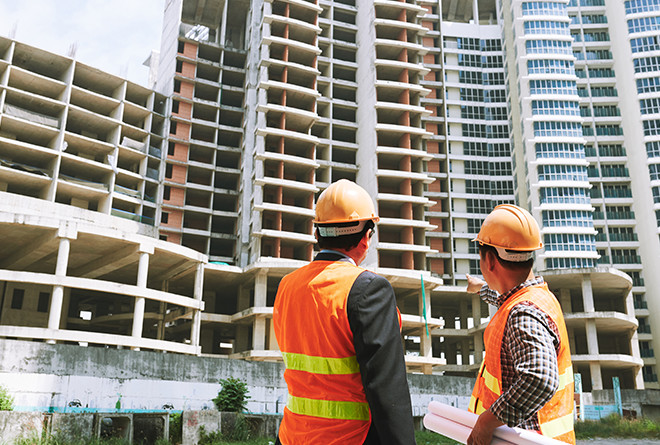
#72The new legislation of the Act on Construction
This law was approved by the National Council of the Slovak Republic in April and will enter into force on April 1, 2024. Until now, this issue has been regulated by the Construction Act. However, the Construction Act is to be replaced by two laws, namely the Construction Act No. 201/2022 and the Spatial Planning Act 200/2022. The aim of the new legislation is to simplify decision-making processes, which are regulated in the Construction Act. In particular, simplification of building permits, digitization of data in connection with spatial planning and construction, reduction of administrative burden, and electrification of processes.
New construction authority
This law foresees the establishment of a new construction authority, namely the Authority for Spatial Planning and Construction of the Slovak Republic. The authority of the existing building authorities will be transferred to the new building authority. The new construction authority will carry out its activities through regional construction offices, their number will be eight.
Deadlines
Due to the fact that the passing of the lengthy periods regulated in the Construction Act caused considerable problems, they are regulated differently in the new Construction Act. The passage of time periods in the Construction Act depends on the complexity of the construction, the more complex the construction, the longer the period for granting a permit.
Simplification of building permits and building removal
This simplification will affect all construction works, with the exception of those where notification is required. One decision on the construction plan will include zoning proceedings, construction proceedings, and possibly also proceedings on environmental impact assessment. Such a decision on the construction plan will be issued by the new construction authority. The construction authority discusses the proposal with all concerned state administration bodies, legal entities, natural persons, the municipality where the building is to be built, and the owners of neighboring plots of land. Such a decision will have limited validity for one year for the external modification of the building, two years for linear construction, and three years for reserved construction.
Buildings that will need to be notified
Even in the case of construction notification, there are several changes that will simplify the decision-making process. Notification will be made through an electronic form. The result of such notification will be a confirmation of the notification of construction. Only minor constructions or construction works, removal of minor constructions, and removal of an unauthorized information structure by a person other than the owner of the unauthorized information structure will be reported.
Electronicization of processes
Electronicization of processes as already mentioned in the previous paragraph, the builder does not have to physically come to the building office when announcing the construction, but it is enough to fill out an electronic form. Communication will therefore take place through an information system that will be managed by the new construction office. Communication will take place in the following way:
- the builder or the designer authorized by him enters the developed draft of the construction plan into the information system,
- the information system assesses the draft construction plan and automatically publishes documents for the parties concerned, which are obliged to issue a binding opinion within the statutory deadline,
- in the event that the affected parties do not issue an opinion, their consent is presumed.
In accordance with the above, the designer entrusted by the builder will have more extensive powers, which include, for example, responsibility for the development of project documentation, and for the procedural aspect of approving the design of the building plan for the builder.
Removal of additional legalization of buildings
For this reason, it is necessary to distinguish whether the building was built before or during the effectiveness of the Act on Construction. If the building is built under the validity of the Construction Act, the building authority must order the removal of the building or ensure the execution of such a decision at its own expense with the right of recourse against the owner of the removed building, if the decision to remove the unauthorized building is not complied with. Furthermore, it orders the owner of such a building to disconnect the building from the supply of gas and electricity and also to impose sanctions in the form of fines, which will be higher than before.
Legal commentary
We provide daily commentary from various fields of law, business, and audit. We try to give an objective and impartial view of current topics that move the professional world.
- AuthorAdmin
- Date5.1.2023
- Webwww.lexante.sk